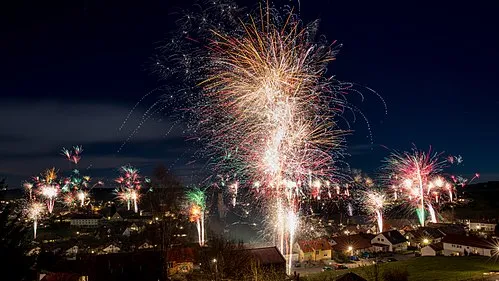
The Sixth Day of Kwanzaa: Understanding the Significance of Kuumba
Kwanzaa, a week-long celebration honoring African heritage, culture, and community, culminates in seven essential principles known as the Nguzo Saba. Each day of Kwanzaa focuses on a different principle, allowing individuals to reflect on their roots and values. The sixth day of Kwanzaa is dedicated to Kuumba, which translates to "creativity" in Swahili.
What is Kuumba?
Kuumba encourages creativity in all its forms, emphasizing the importance of artistic expression and innovation in improving our communities and enhancing our lives. It reminds us of the power of imagination and how we can use our talents to uplift ourselves and our surroundings.
Celebrating Kuumba
On this day, many people participate in various artistic endeavors. This can include crafting, painting, music, dance, and other creative pursuits. Community members often come together to showcase their talents, engage in collaborative projects, and share their creative insights with one another.
Reflecting on Creativity
The essence of Kuumba lies in its ability to encourage contemplation on the role creativity plays in our everyday lives. How can we foster an environment where creativity flourishes? This day serves as an opportunity to consider how we can integrate creative thinking into our personal endeavors and professional pursuits. By promoting creativity, we can nurture innovative solutions to the challenges our communities face.
Ideas for Celebrating Kuumba
- Art Exhibitions: Host an art exhibit showcasing local artists, emphasizing themes of cultural heritage and community resilience.
- Workshops: Organize workshops focusing on various artistic mediums, encouraging participants to explore their creative abilities.
- Community Murals: Collaborate to create a mural that reflects community values or historical figures, symbolizing unity through art.
- Performing Arts: Arrange a talent show or open mic night where individuals can perform music, poetry, or dance.
The Importance of Community in Kuumba
Kuumba emphasizes that creativity is not only an individual pursuit but can also significantly impact community well-being. When individuals come together to create, they foster stronger bonds, share cultural narratives, and build resilience against societal challenges. Celebrating creativity collectively nurtures a sense of belonging and empowerment within the community.
Kuumba and the Nguzo Saba
As part of the Nguzo Saba, Kuumba aligns with the other principles of Kwanzaa—Ujamaa (cooperative economics), Ujima (collective work and responsibility), Nia (purpose), Kuumba (creativity), Imani (faith), and Umoja (unity). Each principle builds on the others, offering a comprehensive framework for personal and communal growth.
Conclusion
The sixth day of Kwanzaa is more than just a celebration of creativity; it represents a call to action for individuals and communities alike. By embodying the spirit of Kuumba, we can inspire innovation, cultivate artistic talents, and strengthen our shared identity. As we commemorate this day, let us remember that creativity is a vital force that can transform our lives and our communities.






